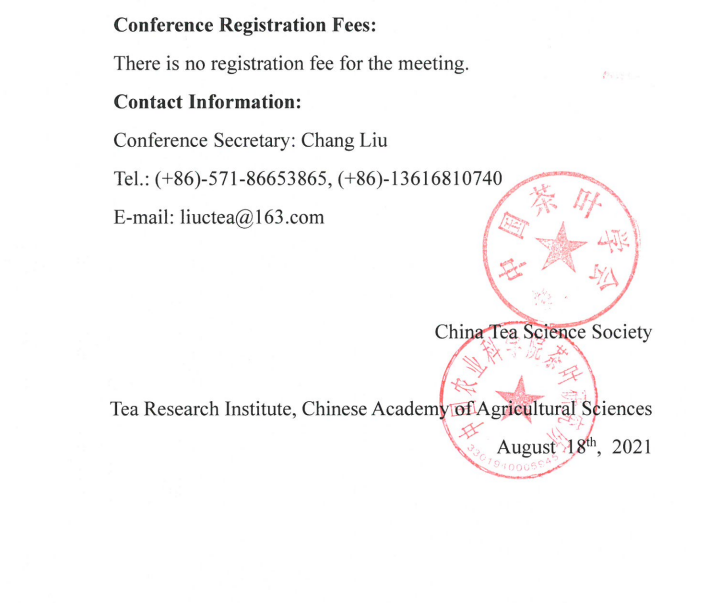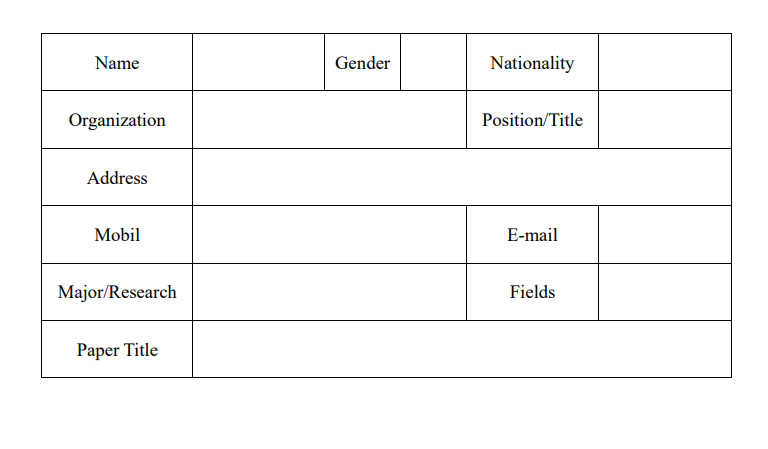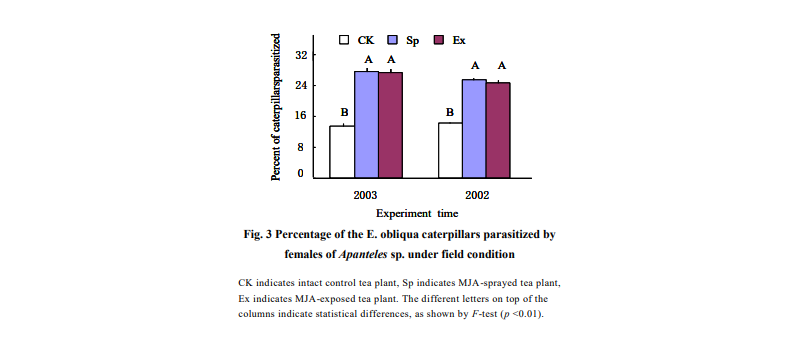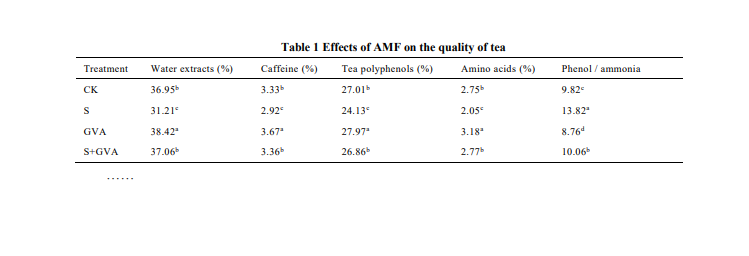The 2021 International Tea Conference & 3
rd Global Forum for
Directors of Tea Research Institutes (ITC 2021) will be held online
and offline in November, 2021. The aim of the conference is to create
a premier international platform for researchers to present their works
and cutting-edge knowledges in the field of tea sciences and
technology, as well as promote international cooperation. We hereby
release the following notice on relevant matters concerning the
conference.
Organizer:
China Tea Science Society (CTSS)
Tea Research Institute, Chinese Academy of Agricultural
Sciences (TRI CAAS)
Date: November, 2021
Form of the Conference: Online and Offline
Requirements for Short Papers:
ITC 2021 is seeking high-quality papers covering a wide range of
topics relating to tea sciences and technology.
1. Paper Submission
Prospective participants are invited to submit a paper up to 2000words while submitting the application form or registering onlinebefore October 15th, 2021. Papers will be peer-reviewed by theconference committee, and part of them will be recommended for oralpresentation at the conference. The ITC 2021 website for registeringand paper submitting will be available shortly.
2. The content of the papers should be focused on the advances oftea scientific areas, including but not limited to the following areas: Tea Germplasm, Tea Plant Breeding, Tea Cultivation, Tea PlantProtection, Tea Manufacture, Tea Deep-Processing, Tea and Health, Tea Plant Molecular Biology, Tea Industry Economic Research andTea Culture. Paper submission and conference attendance are highlywelcomed.
3. The paper should be no longer than 2000 words (1-2 pages) inthe form of Word file; 3-5 key words should be provided to indicatethe purpose, method, result and conclusion. Its abstract should be no longer than 300 words andn include the authors' names, workplace, postal address, e-mail address, etc.


Jasmonic acid (JA) and Methyl jasmonate (MJA) are found in many higher plant species. They
possess the physiological activity of a hormonal and signal transmission in plants, and regulate the
processes of plant growth and development, including plant resistance and senescence, whether they are
naturally occurring or applied exogenously Since Famer et al reported that the defences of plants against
herbivores induced by exogenous MJA and JA, this plant resistance induced by MJA has attracted a wide
interest.
……
Materials and methods
Insects: The tested insect Apanteles sp. and Ectropis obliqua were reared in the laboratory (25?, RH
60%~85%, 14 L: 10D photoperiod) in Tea Research Institute, Chinese Academy of Agricultural Sciences.
……
Results and discussion
In Y-tube olfactometer choice tests, the responses of the females wasps of Apanteles sp. to various
dual-choices of plant or MJA volatiles were studied. Results showed that the MJA treatment volatiles
were preferably selected more often than control (P?0.05), which were expressed as the number of and the
percentage of time spent in first choices made by wasps; the choice in MJA-exposed tea treatment was
selected more often than that of MJA-sprayed tea (P?0.05), but the difference was not significant (Fig. 1,
2). However, the choice in the MJA-sprayed tea and MJA-exposed tea treatment were more than intact
control tea plant (P?0.01), and with more significant difference (Fig. 1, 2). Results showed that tea
induced by exogenous MJA-sprayed or MJA-exposure treatments emitted a variety of volatile organic
compounds (VOC) and significantly increased the attractiveness to female adults of Apanteles sp.
……
Figures and tables


rd Global Forum for
Directors of Tea Research Institutes (ITC 2021) will be held online
and offline in November, 2021. The aim of the conference is to create
a premier international platform for researchers to present their works
and cutting-edge knowledges in the field of tea sciences and
technology, as well as promote international cooperation. We hereby
release the following notice on relevant matters concerning the
conference.
Organizer:
China Tea Science Society (CTSS)
Tea Research Institute, Chinese Academy of Agricultural
Sciences (TRI CAAS)
Date: November, 2021
Form of the Conference: Online and Offline
Requirements for Short Papers:
ITC 2021 is seeking high-quality papers covering a wide range of
topics relating to tea sciences and technology.
1. Paper Submission
Prospective participants are invited to submit a paper up to 2000words while submitting the application form or registering onlinebefore October 15th, 2021. Papers will be peer-reviewed by theconference committee, and part of them will be recommended for oralpresentation at the conference. The ITC 2021 website for registeringand paper submitting will be available shortly.
2. The content of the papers should be focused on the advances oftea scientific areas, including but not limited to the following areas: Tea Germplasm, Tea Plant Breeding, Tea Cultivation, Tea PlantProtection, Tea Manufacture, Tea Deep-Processing, Tea and Health, Tea Plant Molecular Biology, Tea Industry Economic Research andTea Culture. Paper submission and conference attendance are highlywelcomed.
3. The paper should be no longer than 2000 words (1-2 pages) inthe form of Word file; 3-5 key words should be provided to indicatethe purpose, method, result and conclusion. Its abstract should be no longer than 300 words andn include the authors' names, workplace, postal address, e-mail address, etc.

Application Form for
2021 International Tea Conference & 3rd Global Forum
for Directors of Tea Research Institutes

Effect of Exogenous Methyl Jasmonate-induced Tea
Volatiles on Host-selection Behavior of Insects
GUI Lian-you1,2, CHEN Zong-mao2, LIU Shu-sheng1
1. Institute of Applied Entomology, Zhejiang University, Hangzhou 310029, China; 2. Key Laboratory
of Tea Chemical Engineering, Ministry of Agriculture, Tea Research Institute, Chinese Academy of
Agricultural Sciences, Hangzhou 310008 , China
Jasmonic acid (JA) and Methyl jasmonate (MJA) are found in many higher plant species. They
possess the physiological activity of a hormonal and signal transmission in plants, and regulate the
processes of plant growth and development, including plant resistance and senescence, whether they are
naturally occurring or applied exogenously Since Famer et al reported that the defences of plants against
herbivores induced by exogenous MJA and JA, this plant resistance induced by MJA has attracted a wide
interest.
……
Materials and methods
Insects: The tested insect Apanteles sp. and Ectropis obliqua were reared in the laboratory (25?, RH
60%~85%, 14 L: 10D photoperiod) in Tea Research Institute, Chinese Academy of Agricultural Sciences.
……
Results and discussion
In Y-tube olfactometer choice tests, the responses of the females wasps of Apanteles sp. to various
dual-choices of plant or MJA volatiles were studied. Results showed that the MJA treatment volatiles
were preferably selected more often than control (P?0.05), which were expressed as the number of and the
percentage of time spent in first choices made by wasps; the choice in MJA-exposed tea treatment was
selected more often than that of MJA-sprayed tea (P?0.05), but the difference was not significant (Fig. 1,
2). However, the choice in the MJA-sprayed tea and MJA-exposed tea treatment were more than intact
control tea plant (P?0.01), and with more significant difference (Fig. 1, 2). Results showed that tea
induced by exogenous MJA-sprayed or MJA-exposure treatments emitted a variety of volatile organic
compounds (VOC) and significantly increased the attractiveness to female adults of Apanteles sp.
……
Figures and tables


 EN
EN RU
RU
